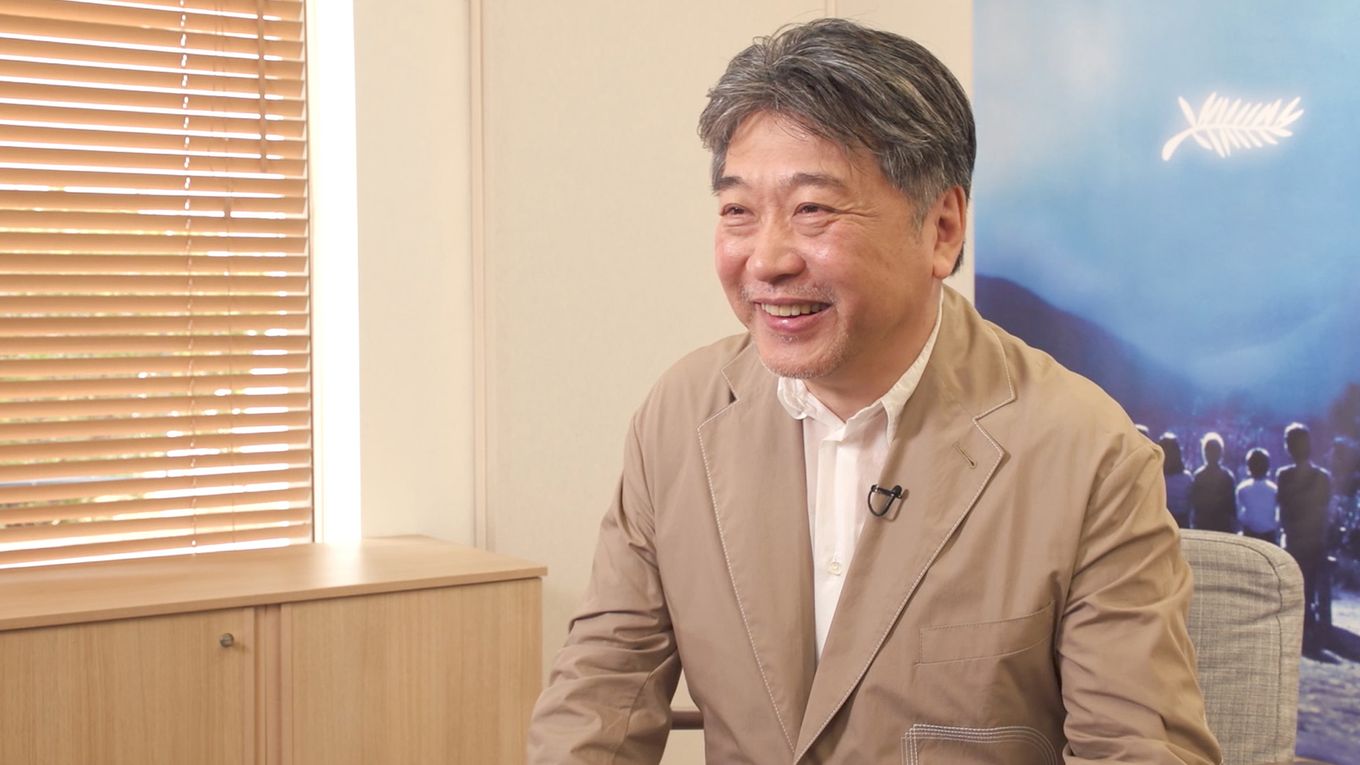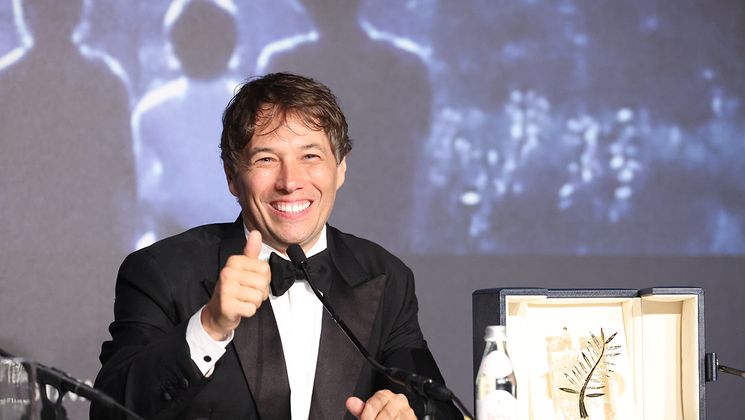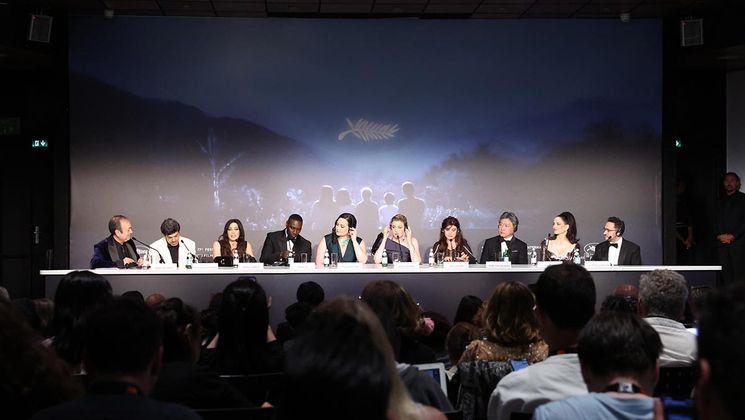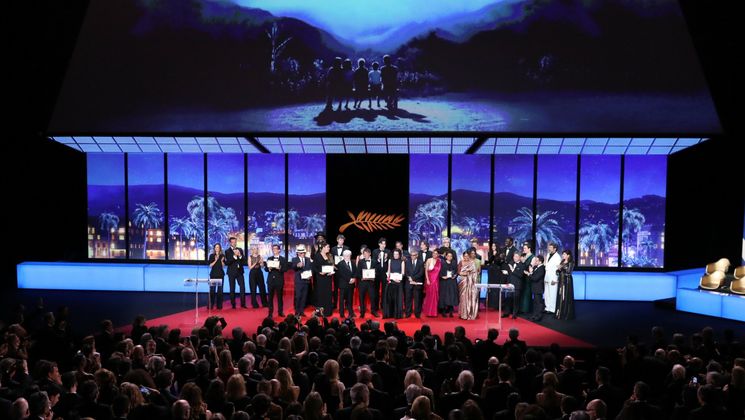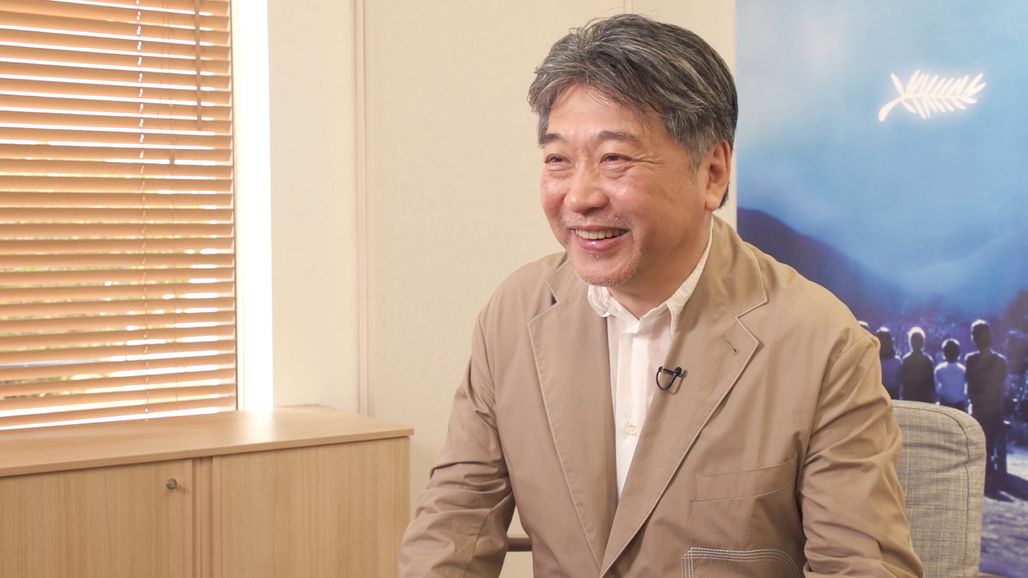
An encounter with Hirokazu Kore-Eda, member of the Feature Film Jury

He received a deluge of awards in Cannes, including the Palme d’or for Shoplifters in 2018. While he did not win the Jury of Feature Films prize (Like Father, Like Son, 2013), the Award for Best Actor for his performer (Innocence, 2023), or the ultimate accolade, Hirokazu Kore-Eda has chosen to give back: this year, he joined the Jury of Feature Films chaired by Greta Gerwig. Interview.
What is your relationship with the festival?
Having my work recognised here and winning prizes has been really huge for my career. As a result, I’ve had the opportunity to meet and make connections with filmmakers from around the world. And it’s largely thanks to the experience that I’ve had here in Cannes that I was able to make a movie in France. It’s time for me to make a contribution, to choose the next generation and to hand on to the next generation the prizes that I have received.
Childhood and family are at the core of your work. What moves you about these subjects?
I’m often asked about that, but it’s not really something I have thought about deeply. If I’m trying to depict a man or a woman, placing them in a family is putting them in the smallest world that they can live in. And within that world there is a daughter, maybe a sister, maybe a wife, maybe a mother. Placing them in the family puts them in those various relationships and shows different sides to that person. I think it is very important not just to show a one-sided person, but to shine a light on them from different directions, to create a 3D character. That’s the appeal of using a family structure in films, because that naturally shows you the many roles that they play within it, and the different masks that they wear.
Where do you get this ability to create surprise in your screenplay?
To be honest, I’m not trying to surprise people. I’m trying to discover through the process of writing, why this world is like it is. How did the relationship between this couple break down? I’m not making things happen. I’m looking for the seeds that are there in the relationships, that ideally lead to discoveries and surprise.
What did you learn from shooting in France?
Filming in France was a very good setup in terms of the labour situation. You’re not allowed to work more than 8 hours a day. The weekends are for time off, for resting. And the entire cast and crew make a movie as part of their daily lives. It’s not seen as something special. Also, it is not unusual to see a movie being made in Japan. If you come across something like that on the street, a lot of people will be annoyed and say “get out of the way!”. You’re a nuisance. But in France, both making movies and seeing movies being made just felt like a normal part of life, which was something new for me. In Japan, it’s getting better though, but making a movie is still seen as an extraordinary event. And while you’re filming, you don’t get to see your family. A lot of the time you don’t get to sleep. It’s like a month-long festival, which is fun for some people, but it’s also hard.
Do you intend to shoot in another country again as you also did in Korea?
I do. I have two projects I want to do over the next five years and I do want to try and make a film in English. I have an idea that would involve Asian and Japanese actors and I want to do something set around World War Two even though it won’t be my next film, but that’s all I can say right now.
Why the Second World War?
There are two reasons why I’m really interested in that period. The first one is that when Japanese people make films about the war, they very often depict Japan as a victim. But when you look at it objectively, Japan wasn’t a victim, and we’re not good at admitting and dealing with our status as the aggressor. You don’t really see that in Japanese films. The other thing is, I’ve always been interested in Japanese people in Brazil, in Hawaii, in San Francisco, etc., immigrants who were left behind in the Japanese territories of Manchuria after the war. These people were abandoned by their own country. And one reason I’m very interested in that is because my dad, after the war, was in Manchuria. He was sent to Siberia, and he was put to hard labour for three years in -40-degree temperatures before coming back to Japan. And when he came back, there was no support for him from the government. He was just abandoned. The people that came back were abandoned by their country. That’s the reason why I am interested in abandoned children.
Not only was there no support, but because they’d been in Siberia, the government thought that they would have been taught communism over there and developed communist tendencies. That meant that he couldn’t get a job in a very large company because people were afraid that he would launch a union. It was really tough for them after the war. This story, that’s not something many people know about.
